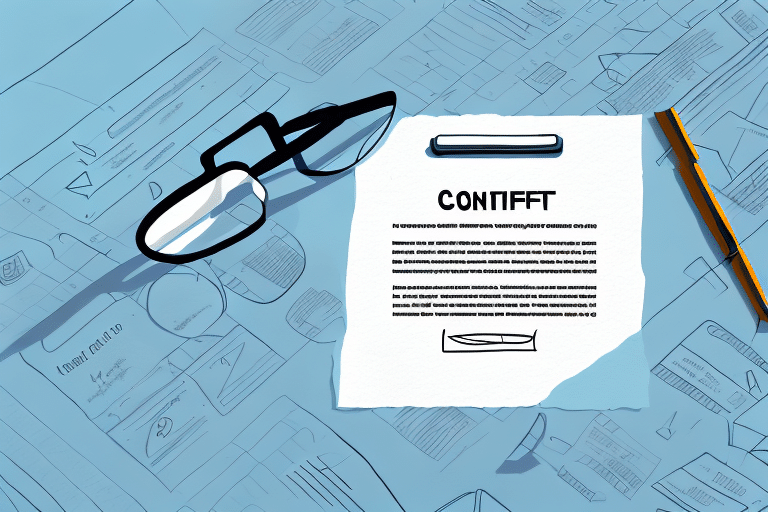Understanding 3PL Contracts: What You Need to Know
If you're a business owner dealing with logistics, you've likely encountered the term "3PL" at some point. A 3PL, or third-party logistics provider, offers outsourced logistics services such as transportation, warehousing, and distribution. But what exactly is a 3PL, and why should you consider partnering with one? This comprehensive guide delves into 3PL contracts, providing detailed insights to help you make informed decisions.
Introduction to 3PL and Their Benefits
What is a 3PL?
A 3PL is a company that provides logistics services to other businesses. These services range from basic transportation to full-scale supply chain management. By outsourcing logistics to a 3PL, businesses can focus on their core competencies while leaving the complexities of transportation and distribution to experts.
Why Consider Partnering with a 3PL?
Partnering with a 3PL offers several benefits:
- Cost Savings: 3PLs leverage their expertise and resources to negotiate better rates with carriers, resulting in significant cost reductions for your business.
- Efficiency and Streamlining: Outsourcing logistics can streamline your supply chain, improving overall efficiency and allowing for faster response times.
- Customized Solutions: 3PLs provide tailored services to meet your specific logistics needs, whether that involves specialized transportation or inventory management.
- Risk Mitigation: 3PLs help mitigate risks associated with logistics, such as delays, damages, and lost shipments, thanks to their experience and expertise.
According to a Statista report, the global 3PL market is expected to continue growing, highlighting the increasing reliance businesses place on these providers.
Types of 3PL Services Available
Understanding the different types of 3PL services is crucial to selecting the right provider for your business needs. Common types include:
- Transportation Management: Services such as routing and scheduling, carrier selection, and freight payment and auditing.
- Warehousing and Distribution: Services including inventory management, order fulfillment, and distribution to retailers and end customers.
- Integrated Logistics: End-to-end supply chain management services that encompass transportation, warehousing, and distribution.
- Specialized Services: Handling specific industries or products, such as hazardous materials or perishable goods, as well as value-added services like packaging, labeling, and assembly.
Selecting a 3PL provider with industry-specific experience can enhance the efficiency and reliability of your supply chain operations.
Developing a 3PL Contract
Key Components of a 3PL Contract
A comprehensive 3PL contract should include the following components:
- Scope of Services: Clearly outlines the logistics services provided by the 3PL.
- Pricing and Payment Terms: Details service pricing, payment terms, and penalties for late payments.
- Service Level Agreements (SLAs): Defines performance metrics and consequences for not meeting them.
- Liability and Insurance Coverage: Specifies the extent of the 3PL's liability and their insurance coverage.
- Confidentiality and Security: Establishes measures to protect confidential information and ensure the security of goods in transit and storage.
Service Level Agreements (SLAs)
SLAs are critical in a 3PL contract as they define the expected performance standards. Example metrics include:
- On-Time Delivery Rate: Percentage of deliveries made on time.
- Damage Rates: Frequency of damaged goods during transit.
- Inventory Accuracy: Precision in inventory management and reporting.
Regularly monitoring SLAs ensures that the 3PL meets your business’s performance expectations. For more on SLAs, refer to the Inbound Logistics guide.
Liability and Insurance Coverage
Understanding the 3PL’s liability and insurance coverage is essential to protect your business in case of loss or damage. Liability terms can vary based on the type of goods handled, so ensure that the contract covers specific requirements, such as:
- Additional insurance for hazardous materials.
- Stricter liability terms for perishable goods.
Confidentiality and Security
Confidentiality clauses ensure that your sensitive information is protected. Security measures should include:
- Security protocols for goods in transit and storage.
- Regular security audits and background checks for employees.
- Physical security measures like surveillance cameras and restricted access to facilities.
Negotiating and Reviewing 3PL Agreements
Negotiating with a 3PL Provider
Effective negotiation ensures that you receive favorable terms. Key areas to negotiate include:
- Pricing: Aim for competitive rates and clarify any additional fees.
- SLAs: Establish realistic and achievable performance metrics.
- Scope of Services: Ensure the services provided align with your business needs.
- Flexibility: Negotiate terms that allow for adjustments as your business evolves.
Building a strong working relationship through open communication can lead to more successful negotiations.
Key Elements to Consider in a 3PL Contract Review
When reviewing a 3PL contract, focus on the following elements:
- Scope of Services: Verify that all required services are included.
- Pricing and Payment Terms: Assess the competitiveness and fairness of the pricing structure.
- SLAs: Ensure that the SLAs are attainable and aligned with your business objectives.
- Liability and Insurance: Confirm that the coverage meets your risk management needs.
- Technology Compatibility: Ensure the 3PL’s technology integrates seamlessly with your systems for real-time visibility.
Additionally, consider the 3PL’s ability to adapt to emerging technologies and industry trends to guarantee long-term value.
Managing Your 3PL Partnership
Optimizing the Relationship
Maximize your partnership with a 3PL by:
- Establishing clear expectations and goals from the outset.
- Regularly communicating performance feedback and discussing opportunities for improvement.
- Fostering transparency and trust by sharing relevant information and maintaining open dialogue.
Clear Communication
Effective communication is vital for the success of your 3PL partnership. Implement strategies such as:
- Setting up regular check-ins and performance reviews.
- Providing timely and accurate information about shipments and inventory.
- Establishing protocols for reporting and addressing security incidents or disruptions.
Clear communication helps in promptly identifying and resolving issues, thereby strengthening the partnership.
Evaluating Performance
Regularly assess your 3PL’s performance by:
- Monitoring SLAs and performance metrics.
- Conducting periodic performance reviews and audits.
- Soliciting feedback from employees and customers to identify areas for improvement.
Utilizing key performance indicators (KPIs) can provide measurable insights into the effectiveness of your 3PL partner.
Common Challenges and Solutions
Working with a 3PL may present challenges such as:
- Communication Delays: Implementing structured communication channels can mitigate delays.
- Supply Chain Disruptions: Developing contingency plans and collaborating closely with your 3PL can address unexpected disruptions.
- Quality Control Issues: Regular audits and feedback sessions can help maintain high-quality standards.
Contract Renewal or Termination
Best Practices for Renewing Your 3PL Contract
When renewing a 3PL contract, consider the following best practices:
- Review and adjust pricing and SLAs to reflect any changes in your business needs.
- Assess the 3PL’s performance over the contract period and address any areas needing improvement.
- Ensure that the contract terms continue to align with your strategic goals.
Best Practices for Ending Your 3PL Contract
If you decide to end a 3PL contract, follow these steps to ensure a smooth transition:
- Review the termination clause in your contract to understand the required notice period and conditions.
- Develop a detailed transition plan to transfer goods and information to a new provider.
- Communicate the termination decision clearly and professionally to the 3PL provider.
- Ensure that all obligations, such as final payments and return of confidential information, are fulfilled.
Proper planning and execution during the termination process can prevent disruptions and maintain continuity in your supply chain.
Conclusion
Understanding 3PL contracts is crucial for any business owner involved in logistics. By partnering with a reliable 3PL provider and carefully reviewing and negotiating contracts, businesses can streamline their supply chains, enhance efficiency, and achieve significant cost savings. Leveraging detailed insights and best practices will ensure a successful and mutually beneficial 3PL partnership.




















